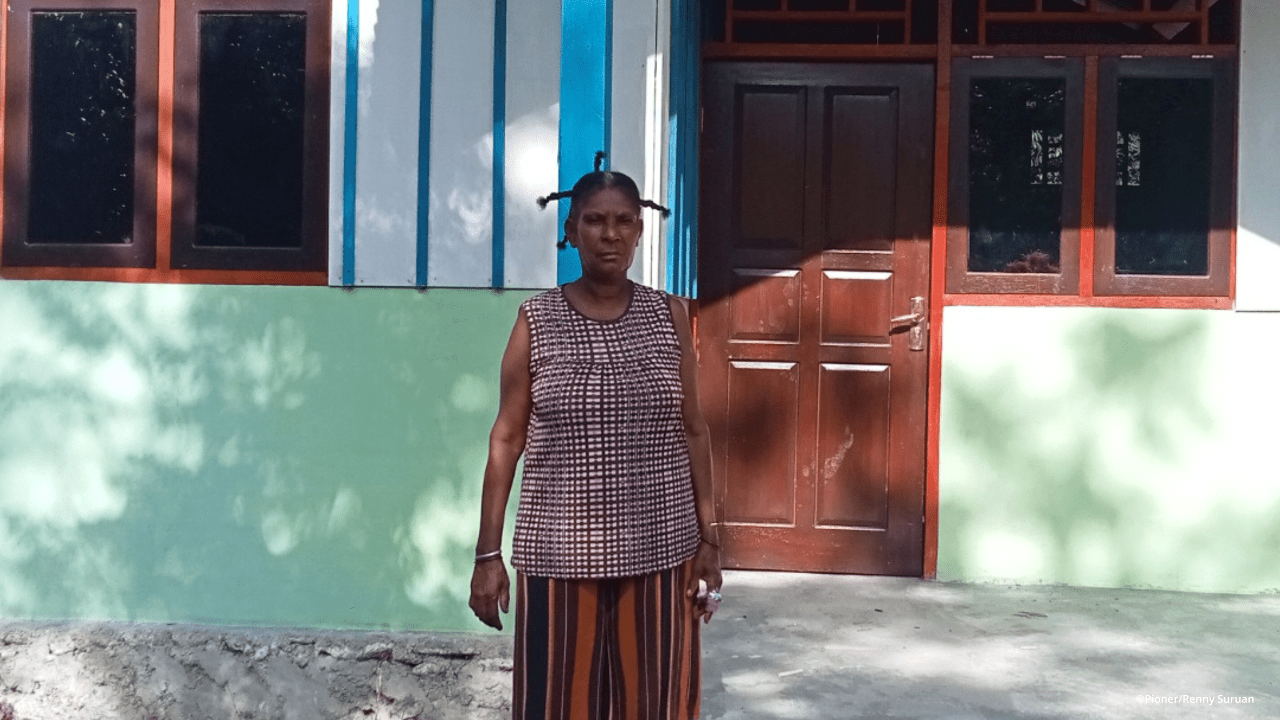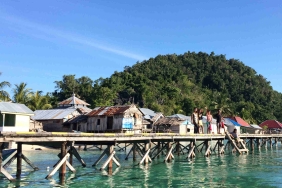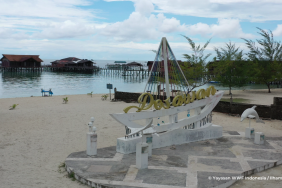INDIGENOUS WOMEN IN JEEN WOMOM, SOUTHWEST PAPUA IN MANAGING NATURAL RESOURCES
Jeen Womom conservation area is a leatherback turtle nesting area located in Tobouw District, Tambrauw Regency, Southwest Papua Province, Papua. In this area there are two villages that are rich in biodiversity and non-biological resources. The two villages are Resye village which has an area of + 3268.65 Ha and Womom village which has an area of ± 9,201.85 Ha. To get to these two villages, a person must use a long boat and PELNI Ship pioneer services through KM (Motor Boat) Belt Nusantara from Jayapura city.
Nature is very important and an inseparable part of the community because it is able to provide what the people of Wowom and Resye village need. And, the use of natural resources is not only dominated by men, but also women.
Many domestic household activities that depend on natural resources and environmental services are taken on by women, ranging from accessing clean water, taking foodstuffs (carbohydrates and proteins), and foraging raw materials for medicines. Therefore, women from both villages are the first to feel the impact of climate change that occurs, because providing food for the family is their responsibility.
The main occupation of women in both villages is gardening as well as managing the household. They need to ascertain when is the best time to start planting and choose the type of plant that is suitable for planting in the garden. The level of rainfall becomes an indicator to determine the growing season and a good harvest for them. According to Ester Yesnat, one of the residents in Womom village, when entering the dry season, the garden is very vulnerable to burning so it is not suitable for planting time. "We have lost langsat, rambutan, durian, taro, and vegetable gardens during land fires, it is very traumatic if we think back," she said.
For this reason, the Non-Governmental Organization, Pioner Tanah Papua facilitated women in Womom and Resye villages to identify indigenous women's management areas such as gardens that became their food granaries, at the end of 2022. Through the Voices for Just Climate Action (VCA) program, the PIONER institution encourages capacity building of women's groups to be able to take action to mitigate and adapt to climate change. The activity began by identifying the management areas of indigenous women in Resye and Womom villages which was carried out participatively followed by women's groups in both villages with an age range of 16 – 50 years.
People from both villages involved in the discussion expressed their views regarding the impact of climate change such as forest fire disasters that often occur during the dry season, so they made rules not to make fires while in the garden or forest. Forest and land fires burned down most of the plants in the garden. Therefore, villagers create yard gardens as an alternative to their household food stock reserves. This illustrates how women affected by climate change are able to adapt and take mitigation actions to save their families' lives.
The result of the activities carried out is to identify management areas based on understanding from women, which is then participatory in making an indicative map of women's management areas. Where, in this indicative map poured information about their own territory, especially in areas of the garden that had been their food granary.
Another effort as an action to increase the capacity of indigenous women in the management and utilization of natural resources is by forming a chip processing management group in Womom village. The head of the group has managed to get one chip production house. This house was obtained after discussion with the village head and strengthened by the communication of the village chief's wife who is also a member of the management group.
The pioneer considered that women who are members of the management group have been able to lobby their brothers and husbands to support the development of the management group.
From the process of identifying natural resource management in the region, it shows that women have many roles in providing information on the distribution, potential, location, and types of natural resources and environmental services that are often managed communally to meet domestic needs. Women are more aware of the location of the resources they need, as well as the types they usually use. In addition, they also provide an overview of areas suitable for opening gardens or growing vegetables and tubers within certain weather conditions or seasons.
This region is managed and developed with the local knowledge and wisdom they have. It is also important to know that women are not only vulnerable to climate change, but they are also effective actors or agents of change related to mitigation and adaptation. Women often have strong knowledge and expertise that can be used in climate change mitigation, disaster reduction, and adaptation strategies.





